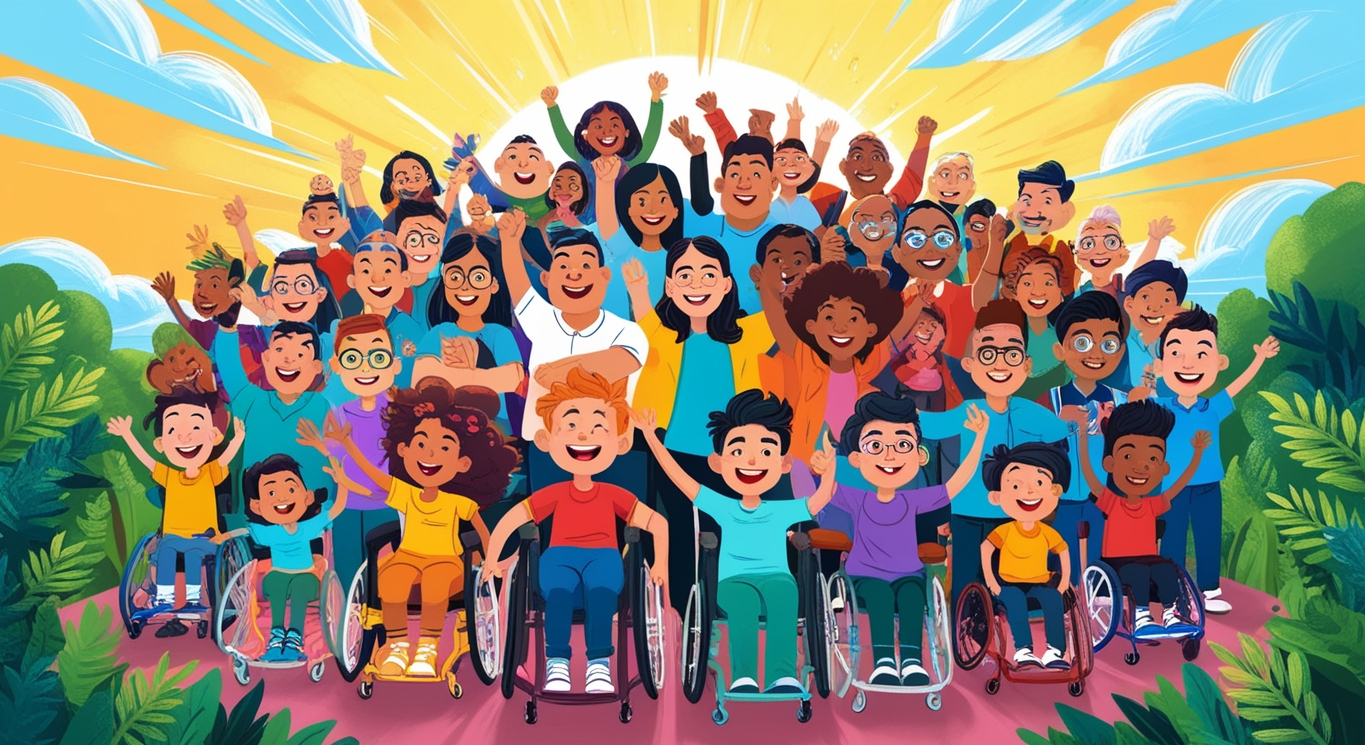
July is Disability Pride Month
Every July, Disability Pride Month is celebrated to honor the contributions, achievements, and rights of people with disabilities.
This observance is not just a celebration of diversity but also a powerful call to action for greater equality, accessibility, and inclusion.
The Origins of Disability Pride Month
Disability Pride Month began in July 1990, a pivotal moment coinciding with the passage of the Americans with Disabilities Act (ADA). Signed into law by President George H.W. Bush, the ADA was a landmark piece of civil rights legislation that prohibits discrimination against individuals with disabilities in all areas of public life, including employment, education, transportation, and access to public and private places. This legislation was a monumental step forward in the fight for civil rights and inclusion.
The first official Disability Pride Parade took place in Boston in 1990, shortly after the ADA was enacted. This parade set the stage for a growing movement, with similar events now held in cities across the United States and around the world. These celebrations provide a platform for people with disabilities to proudly express their identity, advocate for their rights, and celebrate their community.
The Significance of Disability Pride Month
Disability Pride Month is a time to celebrate the strengths, achievements, and contributions of people with disabilities. It is an opportunity to raise awareness about the challenges they face and to promote the importance of accessibility and inclusion. Celebrating Disability Pride Month helps to break down barriers, challenge stereotypes, and create a more inclusive society.
One of the central messages of Disability Pride Month is the importance of self-acceptance and embracing one’s identity. For many people with disabilities, this month is a time to take pride in their disabilities, see them as an integral part of their identity, and recognize the unique perspectives and strengths they bring to the world.
National Resources and Support for People with Disabilities
Numerous organizations and initiatives provide assistance, advocacy, and information for people with disabilities on a national level:
Americans with Disabilities Act (ADA) National Network: This network provides information, guidance, and training on how to implement the ADA. Their website offers resources on various aspects of the ADA and how it applies to different settings. Visit ADA National Network for more information.
National Council on Independent Living (NCIL): NCIL works to advance independent living and the rights of people with disabilities. They provide resources, advocacy, and support for individuals seeking to live independently. More information can be found at NCIL.
Disability Rights Education & Defense Fund (DREDF): DREDF is dedicated to protecting and advancing the civil rights of people with disabilities through legal advocacy, training, education, and public policy. Visit DREDF for more details.
Job Accommodation Network (JAN): JAN provides free, expert, and confidential guidance on workplace accommodations and disability employment issues. Their resources can help individuals and employers create inclusive workplaces. Learn more at JAN. askjan.org
National Disability Rights Network (NDRN): NDRN is the nonprofit membership organization for the federally mandated Protection and Advocacy (P&A) systems and Client Assistance Programs (CAP), providing legal advocacy services to people with disabilities. Visit NDRN for more information. ndrn.org
Resources in Western North Carolina
For those in Western North Carolina, there are several local resources and organizations dedicated to supporting individuals with disabilities:
Disability Partners: Serving Asheville and Sylva, Disability Partners provides services and support to promote independent living for people with disabilities. They offer peer support, advocacy, and information on disability rights. Visit Disability Partners for more details. disabilitypartners.org
Haywood Vocational Opportunities (HVO): Located in Waynesville, HVO provides training and employment opportunities for people with disabilities. They focus on enhancing the quality of life through meaningful work experiences. Learn more at hvoinc.com/
Vaya Health: Vaya Health serves the 23 counties in Western North Carolina, providing behavioral health and developmental disability services. They offer a wide range of support, including crisis intervention, therapy, and community resources. Visit Vaya Health vayahealth.com
NC Division of Vocational Rehabilitation Services (DVRS): The DVRS has offices in Asheville and throughout Western North Carolina, providing vocational rehabilitation services to help individuals with disabilities prepare for, obtain, and maintain employment. More information can be found at NCDHHS.gov/eipd
The Impact and Future of Disability Pride Month
Disability Pride Month has had a significant impact on advancing the rights and visibility of people with disabilities. It has helped challenge stereotypes, promote positive attitudes, and foster a greater understanding of the diverse experiences of people with disabilities.
Looking forward, there is still much work to be done. Issues such as accessibility, employment discrimination, and inadequate healthcare remain pressing concerns. By continuing to raise awareness, advocate for policy changes, and promote inclusion, we can help build a future where everyone, regardless of their abilities, can thrive.
Disability Pride Month is a powerful reminder of the importance of this work and a celebration of the incredible contributions of people with disabilities. As we honor this month, let us continue to embrace diversity, promote inclusion, and strive for a world where everyone can live with dignity and pride.
For more information and to get involved, visit the resources mentioned above and join the movement towards a more inclusive society.
WNCTimes Image: WNCTimes

 How to resolve AdBlock issue?
How to resolve AdBlock issue? 